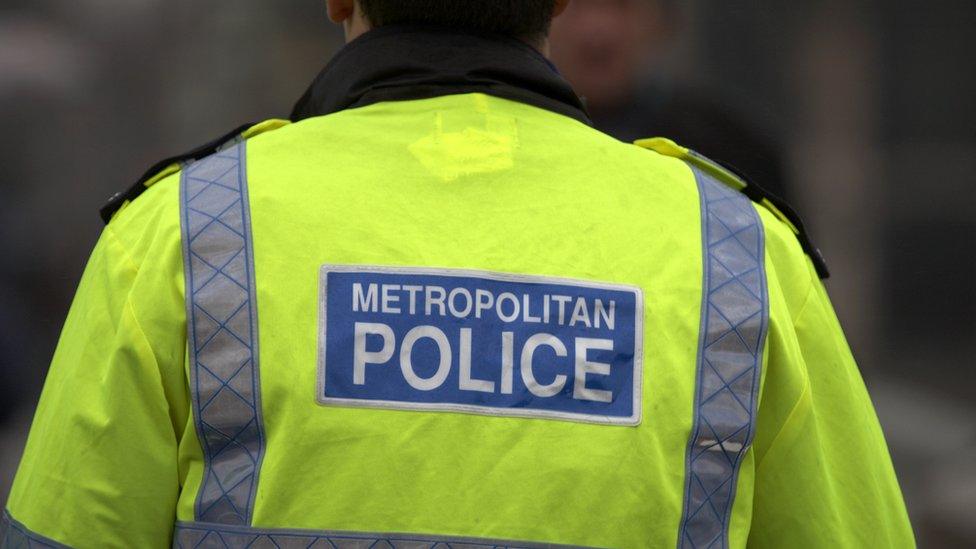Met Police to target 100 most dangerous men using data
- Published
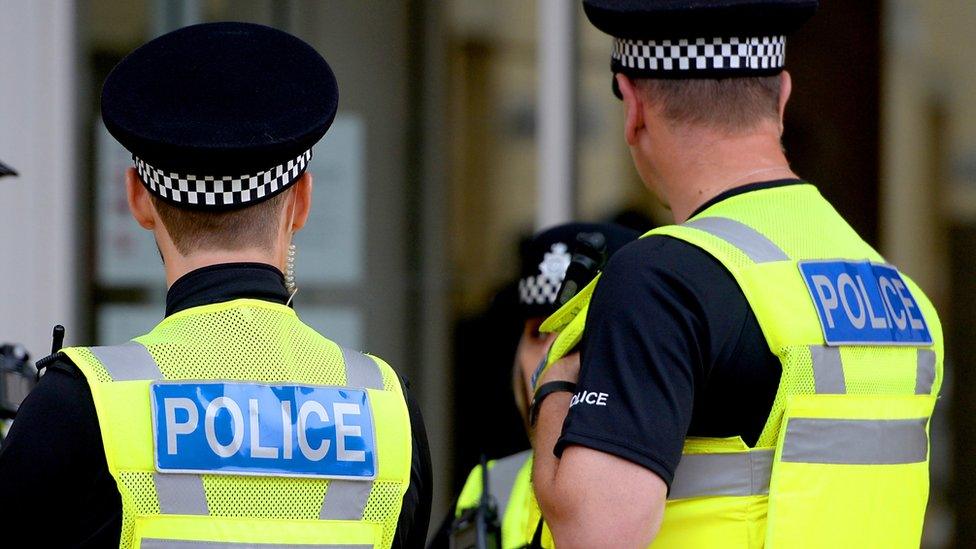
The Met has announced plans to use "counter terrorism and organised crime" tactics to target the most dangerous male predators
The Met Police will start using data to identify the 100 "most dangerous" men in London who prey on women and children.
The plans aim to gather data on tens of thousands of men recently convicted of domestic assault, rape, sex offences, stalking, and harassment.
It comes amid plans to reform the force following several damning reviews.
Met Commissioner Sir Mark Rowley announced the details in a speech on Tuesday.
Speaking at the Institute of Engineering and Technology in Westminster, Sir Mark said the force has "a practical plan for turning things around", adding: "I expect to be held accountable for how that transformation of London's police service evolves in the weeks, months and years ahead."
Sir Mark said the Met would focus on three priorities including "targeting men who perpetuate violence against women and children", building "the strongest ever neighbourhood policing", and "taking an increasingly proactive approach to reducing crime".
He stressed the force would be "cracking down on men who are violent predators", by adopting "counter terrorism and organised crime" tactics, including using intelligence to build a list of tens of thousands of violent male offenders and to target the 100 most dangerous men.
"Most crimes are committed by a small number of individuals, and a small number of victims and areas are the most impacted by crime," Sir Mark explained.
Stop and search
In addition, the commissioner highlighted "countless examples" of where the Met's stop-and-search programme had intercepted criminals, but said the force's goal was to "create better data" by identifying hotspots of violence in order to minimise unnecessary stop-and-search activity.
It comes after figures from the London mayor's office last month showed black Londoners are still three times more likely to be stopped by police.
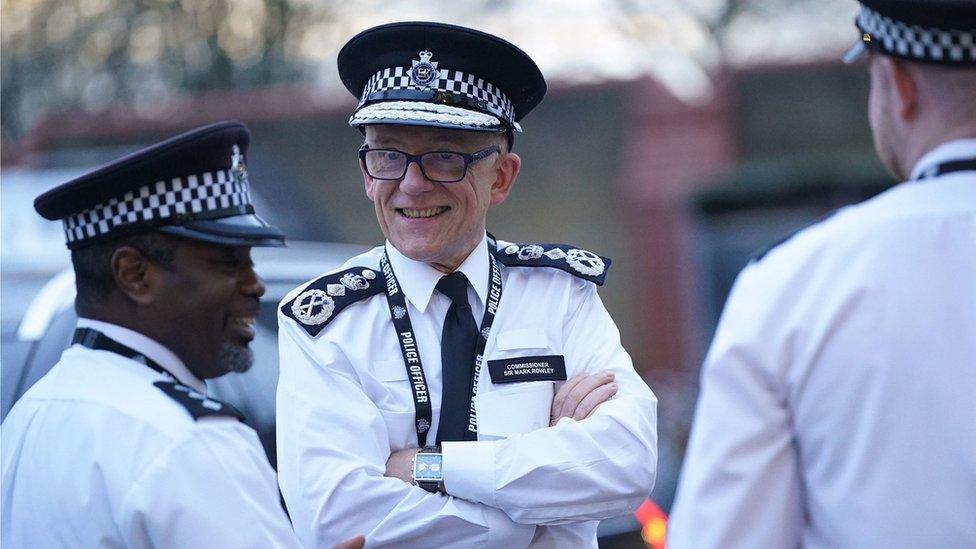
Sir Mark says the Met also wants to minimise unnecessary stop-and-search activity by creating data showing hotspots
Sir Mark added the plans would also see an "overhaul" of neighbourhood policing, "becoming more visible, more engaged and more responsive to local crime and anti-social behaviour - precisely targeting priorities identified with local people".
As part of his mission to modernise policing, Sir Mark said the force's recruitment and pay systems must also be improved to attract officers with "core traditional skills" who also specialise in areas like cyber security and fraud.

Analysis
BBC London's home affairs correspondent Sonja Jessup
The public outcry over the murder of Sarah Everard by a serving police officer, along with a series of cases of misogyny within the Metropolitan police, has put the force under pressure to take tougher action on male violence against women and girls.
But why this approach, using science and technology - and why hasn't it been tried before?
It's being driven by commissioner Sir Mark Rowley, who took up his post in September 2022, and spoke about the difficulties of what he calls "Woolworths policing in an Amazon age".
As a former counter-terror chief he says the same work that goes on there - ranking which individuals present the most risk to the public - can be applied to predatory male offenders.
Will it work? Could it stop men like Jordan McSweeney, who murdered Zara Aleena? He had a string of previous convictions for offences such as assault on a young woman, as well as a restraining order - but police said he didn't fit the normal profile for someone later labelled "a danger to any woman."
It's not yet clear exactly what criteria will be used to measure risk, and Sir Mark says it'll take a few months yet for the data to be pulled together.

'Met must change'
The commissioner also emphasised the Met's progress in making policing more "innovative" and "efficient" such as decisions to issue every officer a mobile phone, put more 'fast response' patrol cars on the streets and build a new Met leadership academy.
London's mayor Sadiq Khan responded to the plans on Twitter, saying: "Sir Mark is right - the Met must change for our communities and for our officers and for our staff who serve them.
"I am committed to holding the Met to account as we work together to build a safer city for all Londoners."
A draft version of the policing plans is set to be published in the next few days, after which the force will seek community and partner feedback.
A further version of the plan will then be published before April.

Follow BBC London on Facebook, external, Twitter , externaland Instagram, external. Send your story ideas to hellobbclondon@bbc.co.uk
- Published9 December 2022
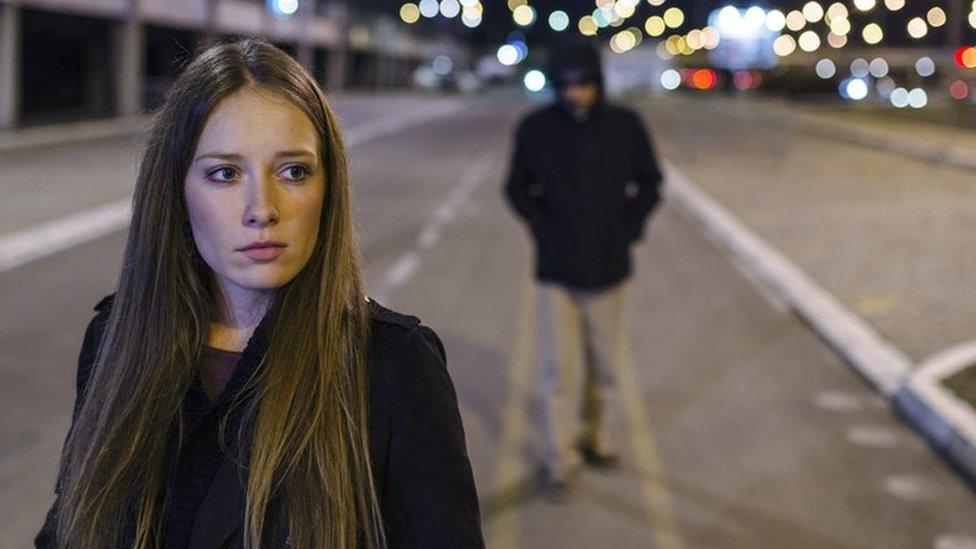
- Published5 December 2022
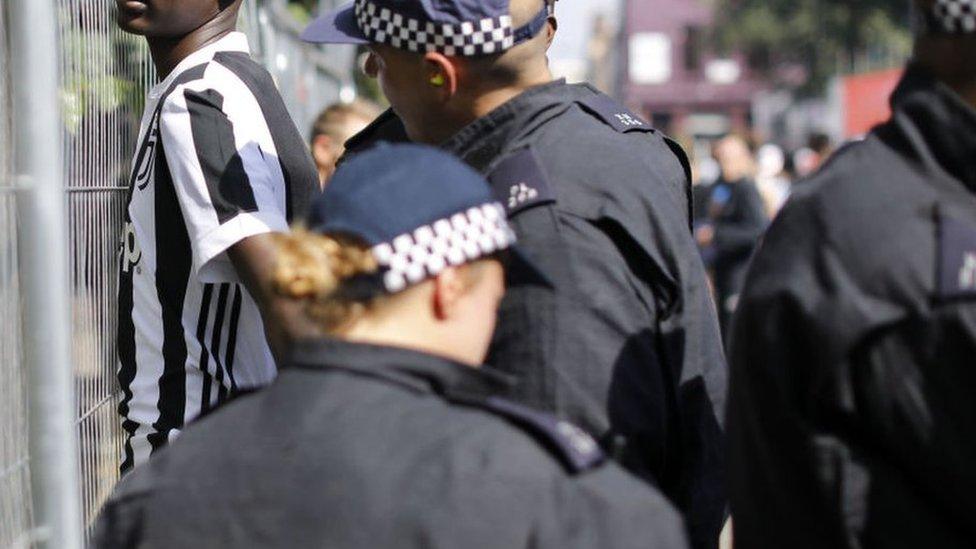
- Published29 November 2022
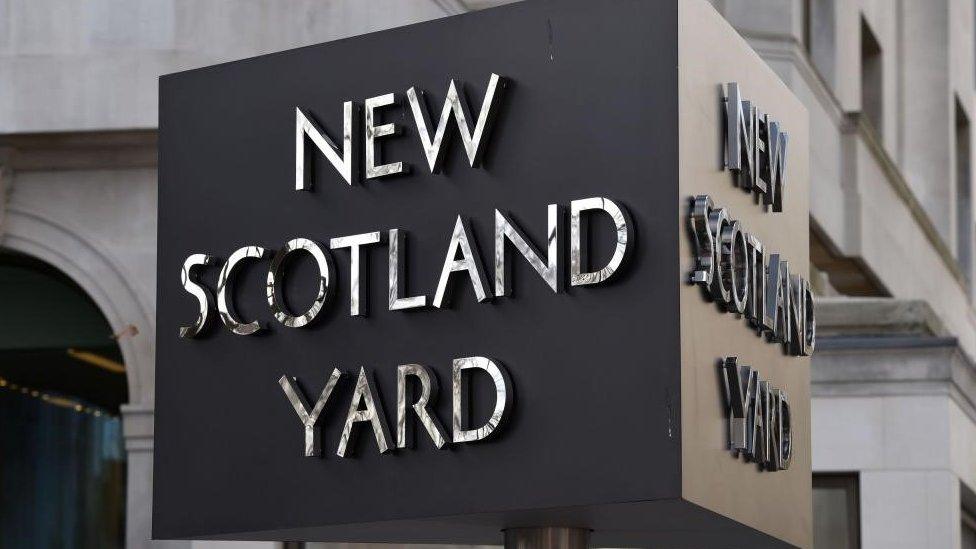
- Published24 November 2022
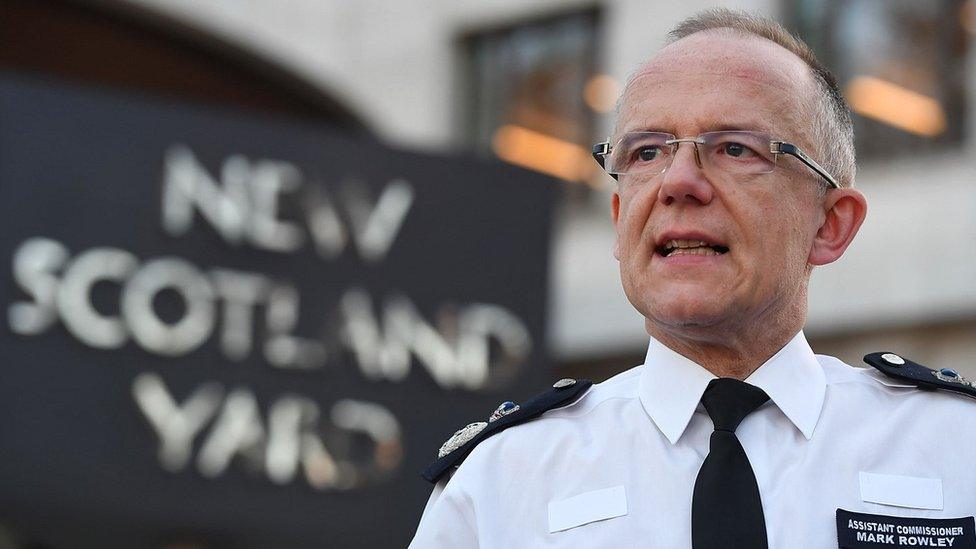
- Published22 September 2022
